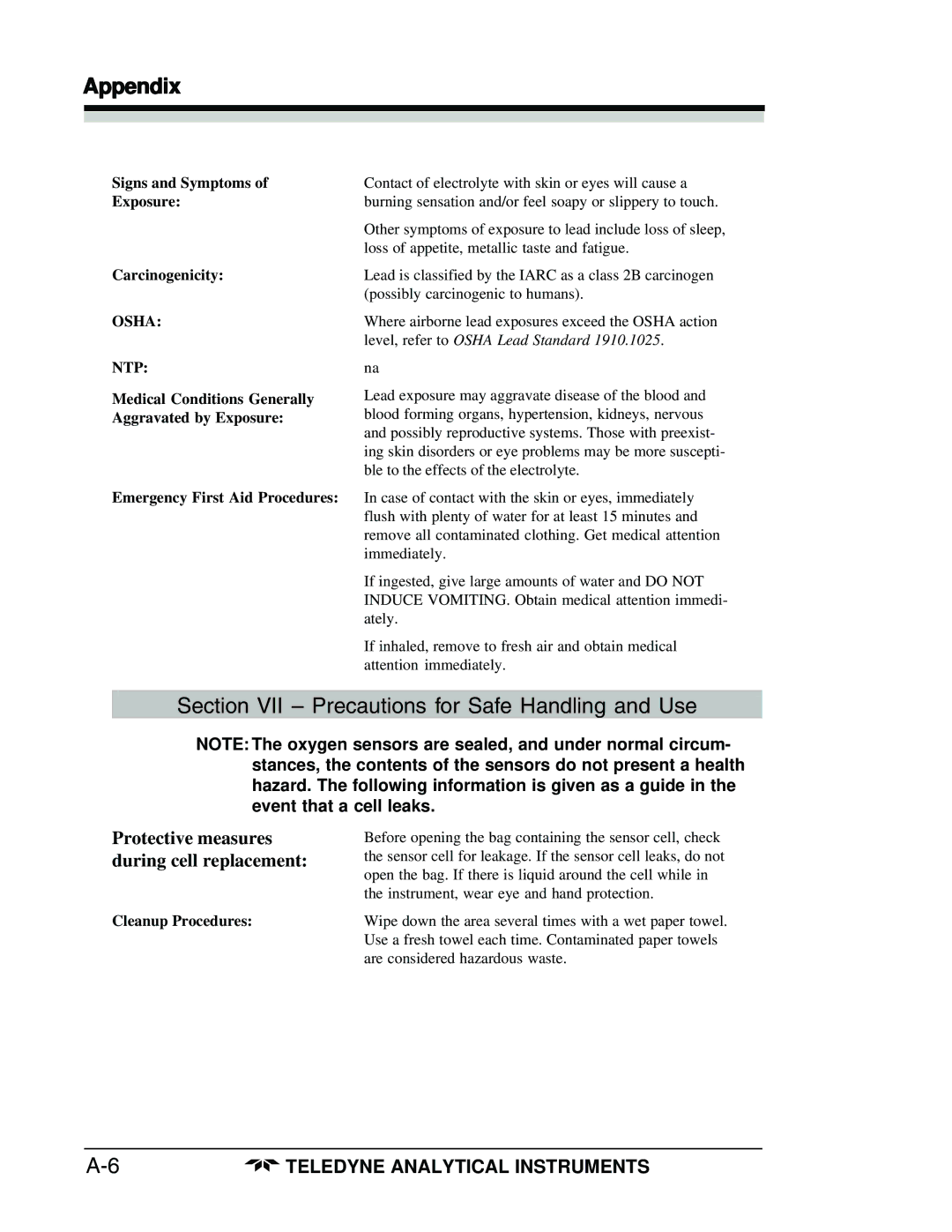
Appendix
Signs and Symptoms of | Contact of electrolyte with skin or eyes will cause a |
Exposure: | burning sensation and/or feel soapy or slippery to touch. |
| Other symptoms of exposure to lead include loss of sleep, |
| loss of appetite, metallic taste and fatigue. |
Carcinogenicity: | Lead is classified by the IARC as a class 2B carcinogen |
| (possibly carcinogenic to humans). |
OSHA: | Where airborne lead exposures exceed the OSHA action |
| level, refer to OSHA Lead Standard 1910.1025. |
NTP:
Medical Conditions Generally Aggravated by Exposure:
na
Lead exposure may aggravate disease of the blood and blood forming organs, hypertension, kidneys, nervous and possibly reproductive systems. Those with preexist- ing skin disorders or eye problems may be more suscepti- ble to the effects of the electrolyte.
Emergency First Aid Procedures: In case of contact with the skin or eyes, immediately flush with plenty of water for at least 15 minutes and remove all contaminated clothing. Get medical attention immediately.
If ingested, give large amounts of water and DO NOT INDUCE VOMITING. Obtain medical attention immedi- ately.
If inhaled, remove to fresh air and obtain medical attention immediately.
Section VII – Precautions for Safe Handling and Use
NOTE: The oxygen sensors are sealed, and under normal circum- stances, the contents of the sensors do not present a health hazard. The following information is given as a guide in the event that a cell leaks.
Protective measures during cell replacement:
Cleanup Procedures:
Before opening the bag containing the sensor cell, check the sensor cell for leakage. If the sensor cell leaks, do not open the bag. If there is liquid around the cell while in the instrument, wear eye and hand protection.
Wipe down the area several times with a wet paper towel. Use a fresh towel each time. Contaminated paper towels are considered hazardous waste.
TELEDYNE ANALYTICAL INSTRUMENTS |
